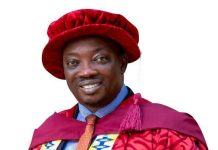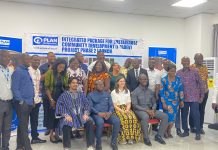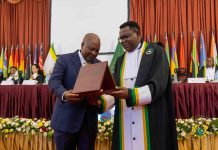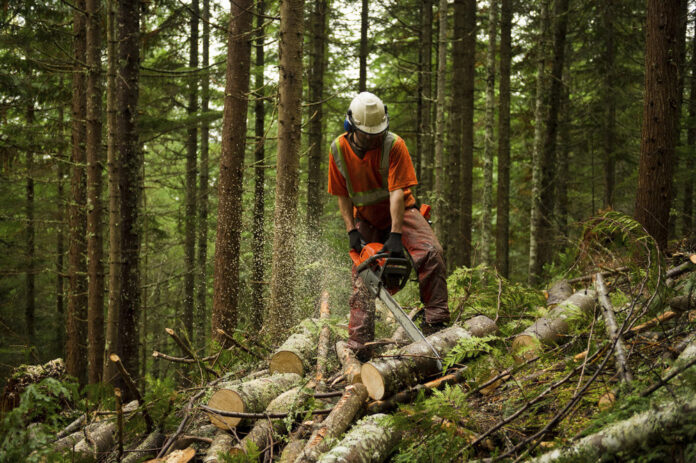Accra, June 5, 2024 – Since 1973, the United Nations Environment Programme, has spearheaded the annual celebration of the biggest international day for the environment commonly known as the World Environment Day (WED).
WED puts a global spotlight on the crucial environmental challenges of our times and over the years, it has metamorphosed to be the largest global platform for environmental outreach.
Ghana has actively participated in these annual events for about 50 years and the Environmental Protection Agency (EPA) of Ghana also celebrated its 50th anniversary this year.
This year, the world’s attention has been drawn to the issue of land restoration, desertification and drought resilience with the slogan “Our Land, Our Future.”
We in Ghana are fully aware of the critical role played by our natural ecosystems including forests, rivers, wetlands, and the sea that have helped to sustain our lives.
Yet, we have and are still deliberately subjecting these life support systems to enormous anthropogenic pressures due to our highly destructive activities and practices being apparently speared by greed.
To meet the ever-growing demand for food and tree crops (cocoa, rubber, oil palm, mango, citrus, coffee, cashew), agricultural expansion has contributed significantly to deforestation and land degradation across the country.
Illegal logging for commercial purposes, including the production of timber also constitutes an important driver in deforestation in Ghana.
The rate of deforestation is estimated to be about 2% per annum. Unregulated fuelwood collection has also led to the indiscriminate felling of trees, particularly in areas with low forest cover.
The growing demand for rosewood in China has led to systemic and rapid illegal exploitation in Ghana.
Consequently, Ghana has been ranked second in Africa and fourth in the world among the top suppliers of rosewood logs to China by volume.
Linked to small-scale gold mining is the logging of rosewood for mine pit maintenance, a phenomenon pronounced in gold mining areas in northern Ghana.
The use ofheavy machinery, such as excavators, bulldozers for surface mining inside forest reserves including increasing legal and illegal small scale mining activities continue to cause destruction of forests leading to soil erosion and water pollution, loss of natural habitats and biodiversity, thus declining our life support ecosystems.
Of late also, real estate development being apparently in forest plantations are contributing to the already threatened remaining forest lands.
This overexploitation and destruction of natural habitats pose significant threats to land restoration efforts, exacerbate desertification, and reduce resilience to drought.
Desertification, the process of land degradation in arid, semi-arid, and dry sub-humid areas, results from various climatic and human factors such as overgrazing, deforestation, unsustainable agricultural practices, and urbanisation.
In Ghana, desertification is increasingly becoming an important economic, social, and environmental challenge. It has led to the loss of soil fertility, land degradation, biodiversity, and vegetation cover, which in turn reduces the water table andmakes the landunsuitable for agriculture andother economic activities.
These areas become more vulnerable to the impacts of climate change and extreme weather events.
This phenomenon negatively impacts the national economy and disproportionately affects poor subsistence farmers, whose livelihoods depend on agriculture.
Drought resiliency focuses essentially on preparing communities for future droughts by offering them the means to endure, withstand, and recover from these events.
Strategies to conserve water, access new water sources, and manage drought on a watershed level can help communities become more resilient.
The Frimpong-Manso Institute shares the view that the world is facing a triple planetary crisis involving three interrelated problems namely: climate change, pollution (air and water quality) as well as biodiversity loss.
All these three key issues converge and exacerbate the adverse impacts caused by each other.
To help restore our degraded lands and build drought resilience, there is the need to enhance sustainable agricultural practices aimed at conserving forests and other natural habitats.
We call for concerted efforts to minimize demand for fuelwood by discouraging the use of traditional cooking stoves by incentivising the adoption of complementary and alternative but affordable and reliable energy appliances and sources, such as improved cookstoves, LPG, biogas and solar.
Government and all relevant stakeholders should disseminate, promote and drive the implementation of various policies and measures and strategies for reducing deforestation and forest degradation commitments outlined in Ghana’s National Communications.
These include Promoting avoided deforestation and restoration of degraded forest, National Forest Plantation Strategy (2016-2040), Restoration of degraded areas and enhanced food production, disseminating climate-smart agriculture technologies at the community level.
More importantly embarking on accelerated implementation of the formalisation of artisanal and small-scale mining, streamlining mining regulations and strengthening compliance monitoring, restoration of areas affected by illegal mining, community involvement in mining promoting compliance and enforcement of existing laws and regulations designed to combat deforestation, such as the ban on illegal logging and the protection of forest reserves.
Government should double its efforts to improve sustainable land and water management practices including communication and knowledge management in the country.
It should also work with local communities to upscale the adoption of locally owned low-technology agroforestry practices to solve the challenges involved the rehabilitation of degraded lands.
Government along with all concerned parties should contribute to enforcing existing laws and regulations designed to combat deforestation, such as the ban on illegal logging, galamsey activities and discourage real estates development in forest reserves and wetlands.
Social inclusivity is imperative and may be achieved by establishing inclusive local land governance structures concerning land restoration and building drought resilience.
Additionally, we suggest the urgency of strengthening key national implementing institutions such as the Environmental Protection Agencies, the Ghana National Fire Service, District and Municipal Assemblies as well as civil society organisations to play meaningful roles in ecosystem restoration initiatives.
Special emphasis shouldbe placedon the role ofwomen and youth in the control of bushfires.
It behooves on us to mobilise all sectors of the Ghanaian society including our political, religious, and traditional leaders; the civil society organisations, businesses and individuals amongst others to embark aggressively on a comprehensive multi-year programme to restore our badly degraded ecosystems and build upon drought resilience policies and programmes.
It is appropriate here to echo the sentiments expressed by the United Nations Secretary-General António Guterres that “humanity is waging war on nature. This is senseless and suicidal”.
Together, let us commit to restoring our land for a sustainable future.
ISSUED BY
FRIMPONG-MANSO INSTITUTE
Dr. George Manful (FMI Thematic Chair – Environment and Sustainability)
For comments and queries contact Dr. George Manful – 054 893 7071
Thank you.






































